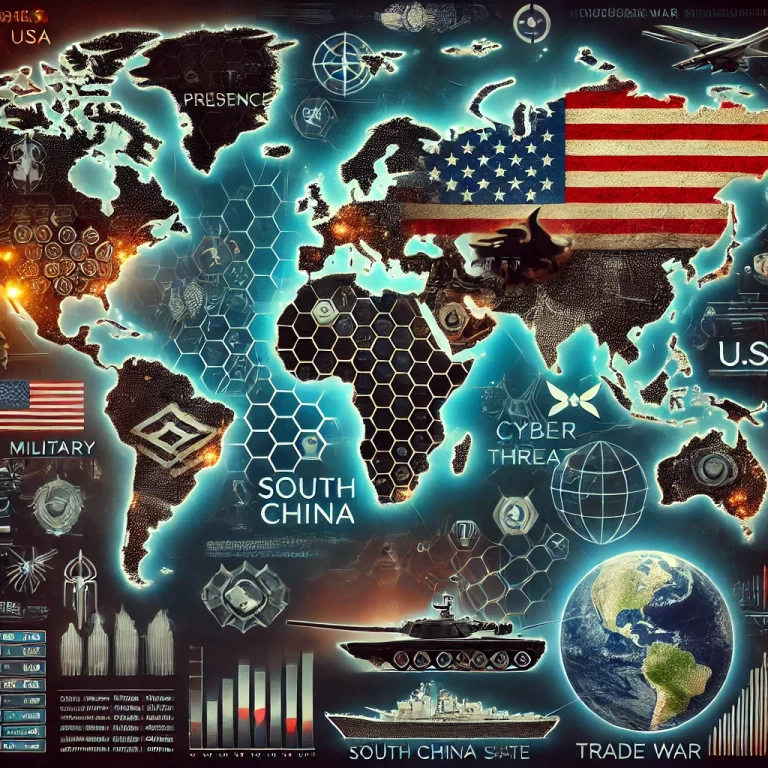
Trump’s Middle East Legacy: Strengthening the Foundations for Peace and Prosperity
Donald Trump’s presidency introduced a bold new chapter in Middle Eastern diplomacy, blending pragmatic outreach with decisive actions aimed at reshaping the region’s geopolitical landscape. From the historic Abraham Accords to his “maximum pressure” campaign on Iran, Trump’s policies emphasized results over rhetoric. His approach has left a lasting impact, creating opportunities for peace and cooperation while challenging traditional frameworks. As his potential second term approaches, refining these policies could further solidify their benefits, address key criticisms, and maximize their humanitarian and geopolitical impact.
The Abraham Accords: A Remarkable Diplomatic Breakthrough
The Abraham Accords, orchestrated under Trump’s administration, achieved what many deemed improbable—normalizing relations between Israel and several Arab states, including the UAE, Bahrain, Morocco, and Sudan. By prioritizing economic collaboration, technology sharing, and mutual security interests, the Accords fostered an unprecedented environment of cooperation in a region fraught with decades of conflict.
This achievement, however, has also faced critiques. Analysts from institutions such as the International Crisis Group argue that while the Accords symbolize progress, they have not directly addressed the Israeli-Palestinian conflict—a core issue in Middle Eastern stability . Moreover, Palestinian leaders have expressed concerns about being sidelined in negotiations that reshape the region’s alliances
Still, Trump’s approach laid a foundation that a second term could build upon. Expanding the Accords to include more Arab states, such as Saudi Arabia, and introducing development initiatives focused on shared challenges—like water scarcity and renewable energy—would enhance their inclusivity and long-term impact. In doing so, Trump can demonstrate that peace agreements are not just strategic moves but also pathways to uplifting all regional communities, including marginalized ones.
Iran: Balancing Pressure with Strategic Diplomacy
Trump’s withdrawal from the Joint Comprehensive Plan of Action (JCPOA) and the subsequent “maximum pressure” campaign redefined U.S.-Iran relations. By imposing severe sanctions, his administration sought to curtail Iran’s nuclear ambitions and limit its influence in conflict zones like Yemen, Syria, and Lebanon. While this strategy successfully debilitated Iran’s economy, critics argue it may have exacerbated humanitarian crises in the region.
For instance, reports from the United Nations indicate that sanctions have indirectly worsened conditions in Yemen and Lebanon, as Iranian-backed groups redirect resources to maintain influence while neglecting local populations  . This has led to increased instability and suffering, particularly among civilians. Critics from the European Union have also highlighted that the lack of a diplomatic follow-up to sanctions reduced the likelihood of long-term agreements
Nevertheless, Trump’s hardline stance on Iran underscored the importance of holding Tehran accountable. A more balanced strategy, blending economic pressure with targeted diplomatic outreach, could yield better outcomes. For example, reopening talks with Iran under a stricter framework that involves regional players, such as Saudi Arabia and the UAE, might lead to agreements addressing not only nuclear proliferation but also Iran’s support for militant groups.
Addressing Humanitarian Challenges: A Critical Opportunity
Trump’s transactional diplomacy often prioritized security and economic objectives over humanitarian concerns. While effective in fostering high-level agreements, this approach has drawn criticism for overlooking the human costs of conflict, particularly in Gaza, Syria, and Yemen. The UN Relief and Works Agency (UNRWA) reported that U.S. funding cuts under Trump exacerbated already dire conditions in Palestinian refugee campsngthen his legacy, a second Trump term could integrate humanitarian considerations more prominently. For example, channeling support for rebuilding efforts in Gaza and Lebanon would signal a commitment to stability beyond mere political alliances. Partnerships with international organizations like UNICEF or the World Food Programme could provide Trump’s policies with a more balanced and compassionate framework.
Case Studies: The Impact of Transactional Diplomacy
Trump’s direct, leader-to-leader diplomacy often bypassed traditional multilateral mechanisms, achieving results in ways previously considered unorthodox. A notable example is his administration’s success in encouraging smaller Gulf states to align with Israel through the Abraham Accords. This approach empowered smaller nations to assert their agency in regional dynamics, breaking the dominance of larger powers like Iran.
However, this same transactional method has raised concerns about neglecting the voices of marginalized communities. For instance, while the UAE and Bahrain benefited from economic and security deals, Palestinians felt increasingly isolated from the negotiation process . Balancinsactional style with multilateral input could ensure that smaller and vulnerable groups do not feel excluded from the benefits of broader regional cooperation.
Hybrid Diplomacy: Strengthening Multilateral and Bilateral Synergies
One of Trump’s defining strengths was his ability to challenge the status quo, exposing inefficiencies in multilateral organizations like the UN. However, blending transactional diplomacy with multilateral mechanisms could create a more comprehensive and adaptable strategy. By involving institutions such as the Arab League or the African Union in key initiatives, Trump’s administration could amplify its reach while preserving its results-oriented ethos.
For example, addressing water and energy crises across the region through collaborative projects would enhance regional resilience and economic growth. Similarly, leveraging multilateral platforms for humanitarian relief could alleviate criticism of U.S. disengagement from global aid efforts.
Conclusion: A Legacy of Potential and Pragmatism
Donald Trump’s Middle East policies marked a significant departure from conventional diplomacy, emphasizing direct engagement, national interests, and pragmatic solutions. His achievements, particularly the Abraham Accords, have reshaped regional dynamics and opened new avenues for cooperation. At the same time, criticisms from international organizations and policy experts highlight areas where his approach could be refined to address humanitarian concerns and foster broader inclusivity.
A second Trump presidency presents an opportunity to build on these accomplishments by expanding the scope of the Abraham Accords, re-engaging Iran with a balanced approach, and integrating humanitarian priorities into his policies. By blending his results-oriented ethos with a nuanced understanding of regional complexities, Trump could solidify a legacy that prioritizes both peace and prosperity in the Middle East.
Dr. Brian Reuben is the Executive Chairman of the Sixteenth Council and the Founder of the Africa Economic Summit.



